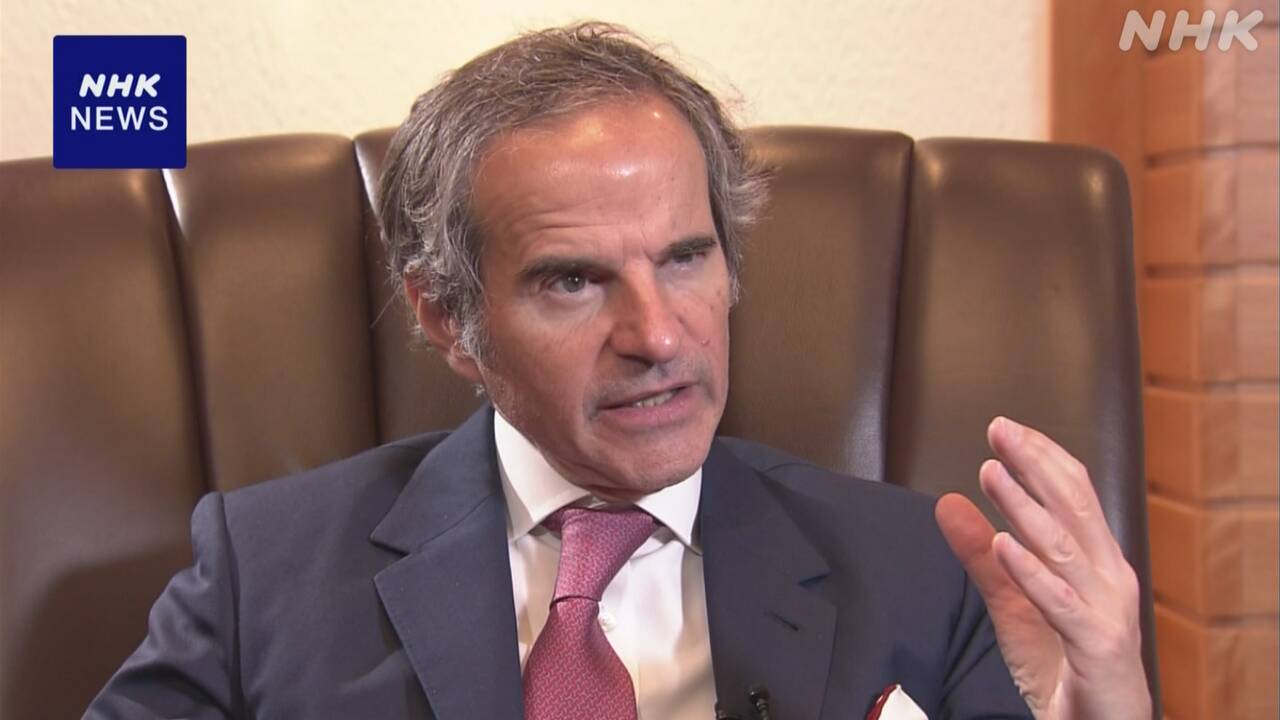Director-General Grossi, the head of the International Atomic Energy Agency (IAEA), who visited Japan on the 12th, gave an interview to NHK and said, ``There is a lot of misinformation and confusion, but there is only one The solution is complete transparency of information,'' he said, indicating that the IAEA will share the safety information it has collected with countries that have expressed opposition or concerns.
IAEA Director-General Grossi has been visiting Japan since the 12th to check the status of the discharge of treated water accumulated at the Fukushima Daiichi Nuclear Power Plant into the sea, and gave an interview to NHK before his visit on the 13th.
In the meeting, the Director-General mentioned that the IAEA independently verified the safety of treated water at the Fukushima Daiichi Nuclear Power Plant, saying, ``Japan's plan is in line with international safety standards. The question is whether it will be carried out as planned,'' he said, indicating that he would conduct an inspection on the 13th to ascertain the situation at the site.
When asked about responses to countries such as China that have expressed opposition or concerns about the release of treated water, the Director-General replied, ``Dialogue is still ongoing and I hope that the concerns will be resolved.My feeling is that ``I think people in each country are gradually beginning to understand the situation with treated water.''
``Some people are afraid about treated water, and there is a lot of misinformation and confusion. The only way to combat this is complete transparency of information,'' he said, ``to promote scientific understanding.'' He expressed his intention to share the safety information collected by the IAEA with other countries.
Regarding the Kashiwazaki-Kariwa nuclear power plant, which has faced a series of counter-terrorism problems
In addition, Director-General Grossi said in an interview that he will conduct an on-site investigation from the end of this month at Tokyo Electric Power Company's Kashiwazaki-Kariwa Nuclear Power Plant in Niigata Prefecture, where there have been a number of counter-terrorism problems, saying, ``We will provide support to ensure that all countermeasures are taken.'' and provide advice.”
Three years ago, a series of anti-terrorism problems were discovered at the Kashiwazaki-Kariwa nuclear power plant, and the Nuclear Regulation Authority issued a de facto order to prohibit its operation.
The order was lifted in December last year, but TEPCO has asked the IAEA to evaluate the progress of improvements from a third-party perspective, and an on-site inspection is scheduled to take place from the 25th of this month to the 2nd of next month. is.
``TEPCO recognizes the need to strengthen countermeasures,'' Director-General Grossi said, adding, ``What we were asked to do was help ensure that all nuclear security measures were taken at the vast Kashiwazaki-Kariwa Nuclear Power Plant.'' "I want to provide timely advice."
According to TEPCO, the IAEA expert team will check equipment related to counter-terrorism measures and interview station staff during the on-site investigation.

